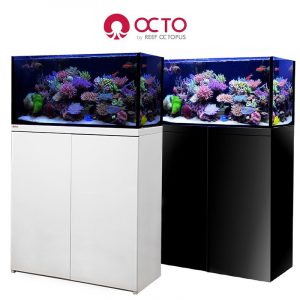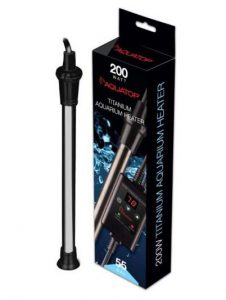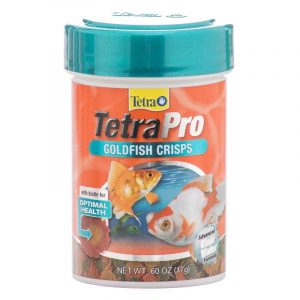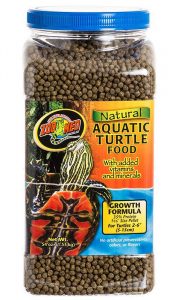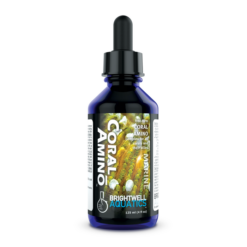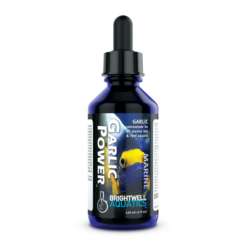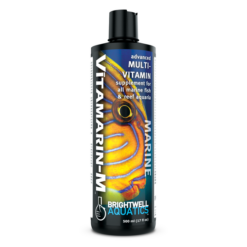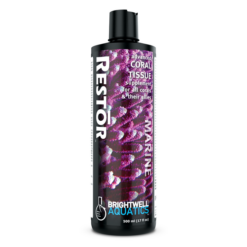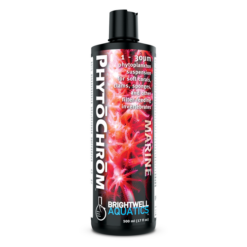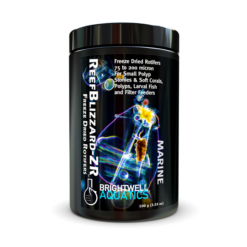Complex of carbonate-bound, non-conservative major, minor, and trace elements in
aragonite ratios, as well as marine-derived proteins and lipids in coral tissue ratios.
Simultaneously delivers appropriate inorganic and organic nutrients required by stony
corals, both zooxanthellate and azooxanthellate soft corals, gorgonians, clams, tube
worms, sponges, tunicates, and other suspension-feeding invertebrates for growth of
both soft tissue and skeletal material.
Ideally fed at night when most corals extend their tentacles forprey-capture.
Does not require refrigeration.
Formulated by a marine scientist.
Marine snow is a term coined by oceanographers to describe aggregate particulate material (which may or may not be organic) falling towards the sea floor; the material, itself, is largely composed of the remnants of deceased zooplankton and large phytoplankton. These organic particles typically become colonized by various microorganisms (primarily bacteria and protozoans) during their descent towards the sea floor; the decomposition of the organic material by the microorganism “colony” on each particle recycles the nutrients locked up within it. The constant descent of these particles through the water column has the appearance of snow fall, hence the name “marine snow”. While marine snow is primarily associated with productive regions of the open ocean rather than tropical coral reefs, the concept (with some improvements adressing the requirements of reef-building organisms) may be applied to reef aquaria as a means of simultaneously delivering organic and inorganic nutrients to corals and other suspension-feeding invertebrates.

